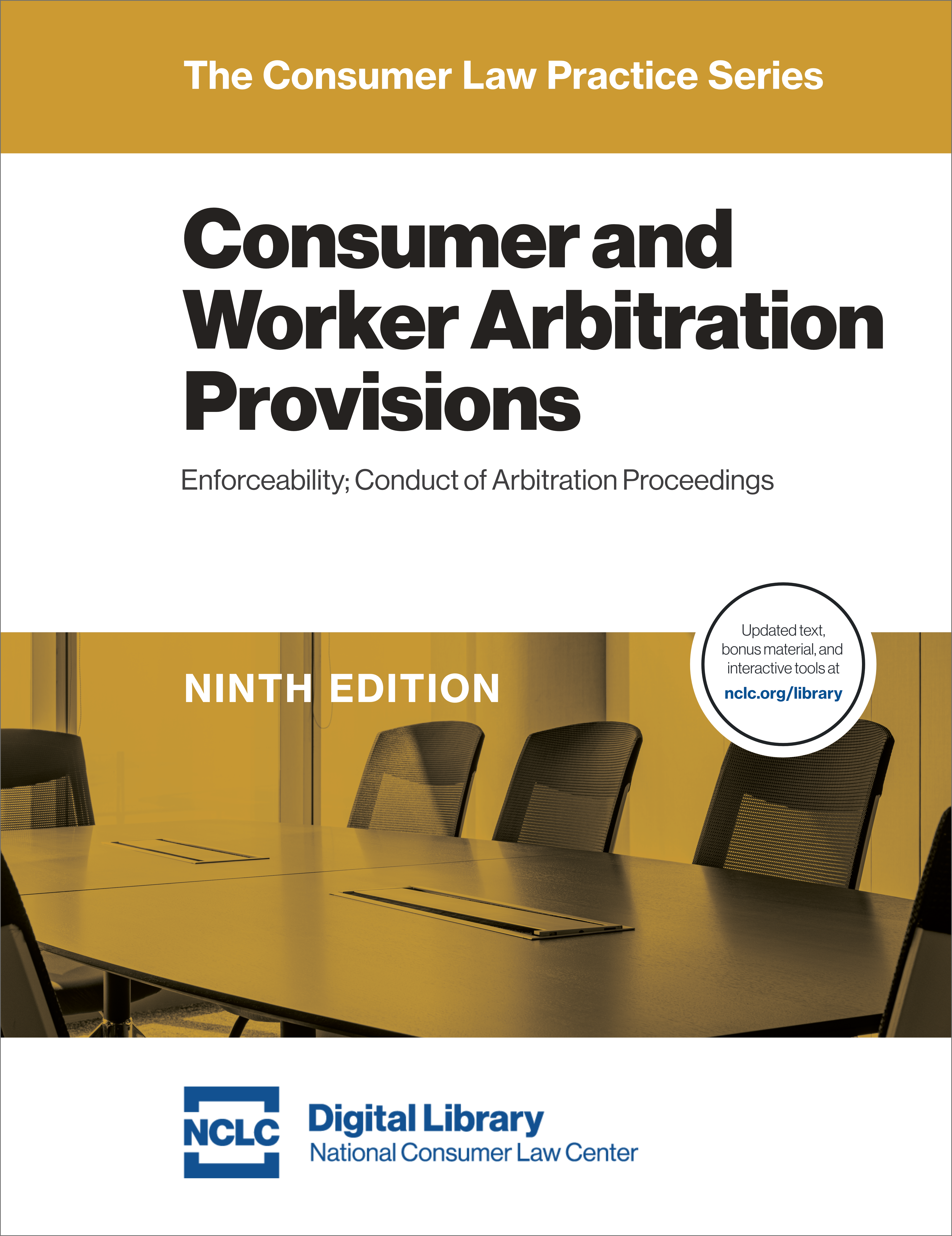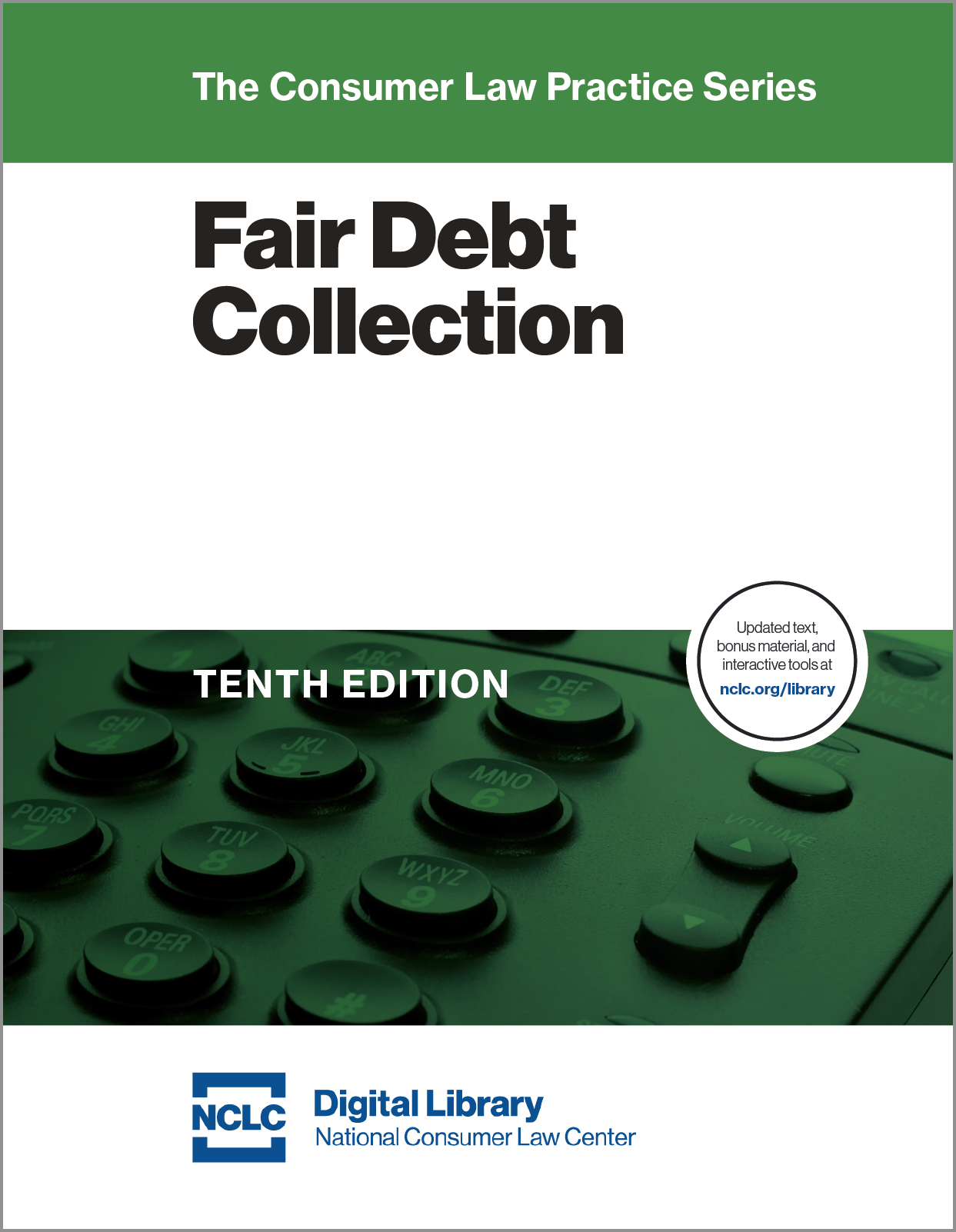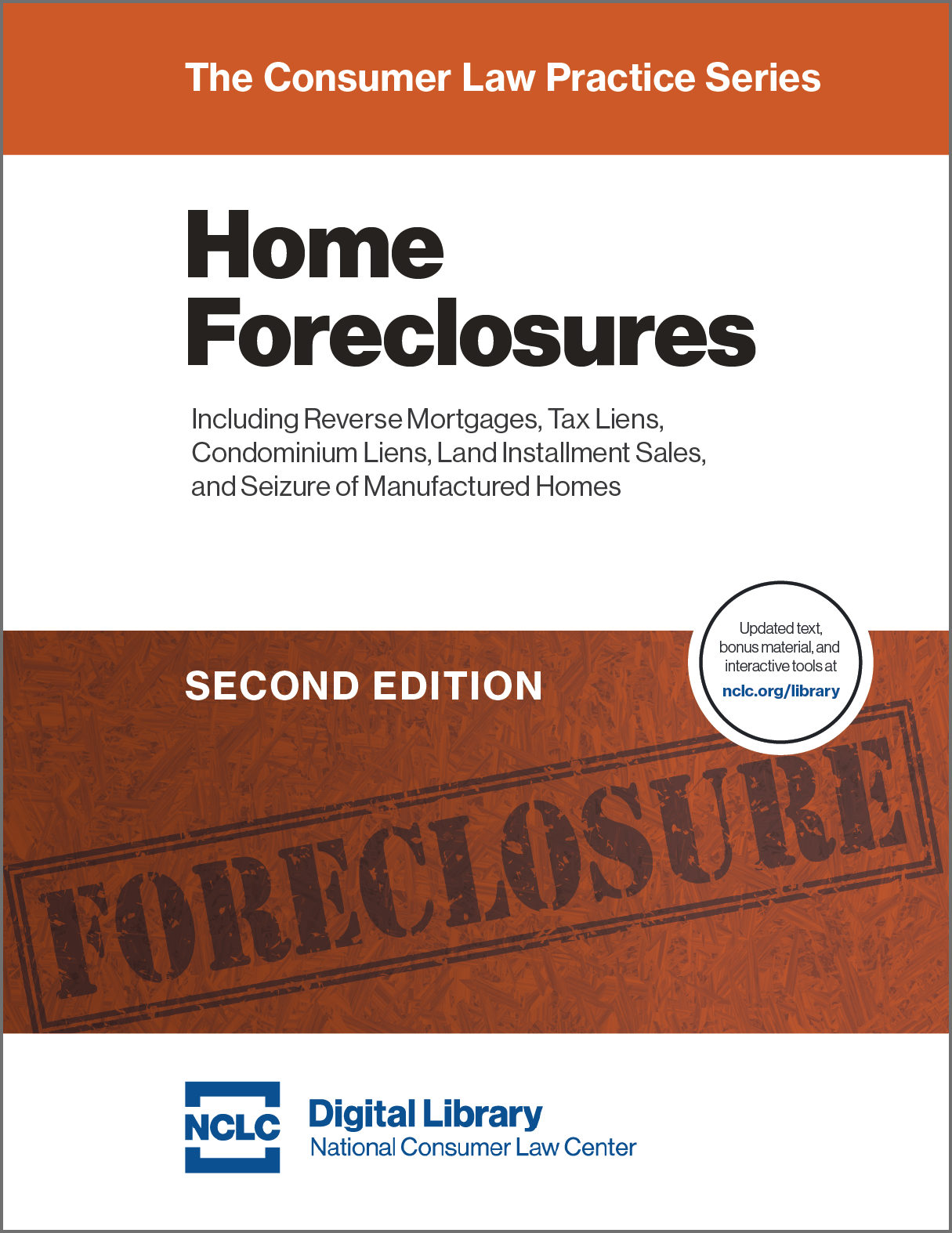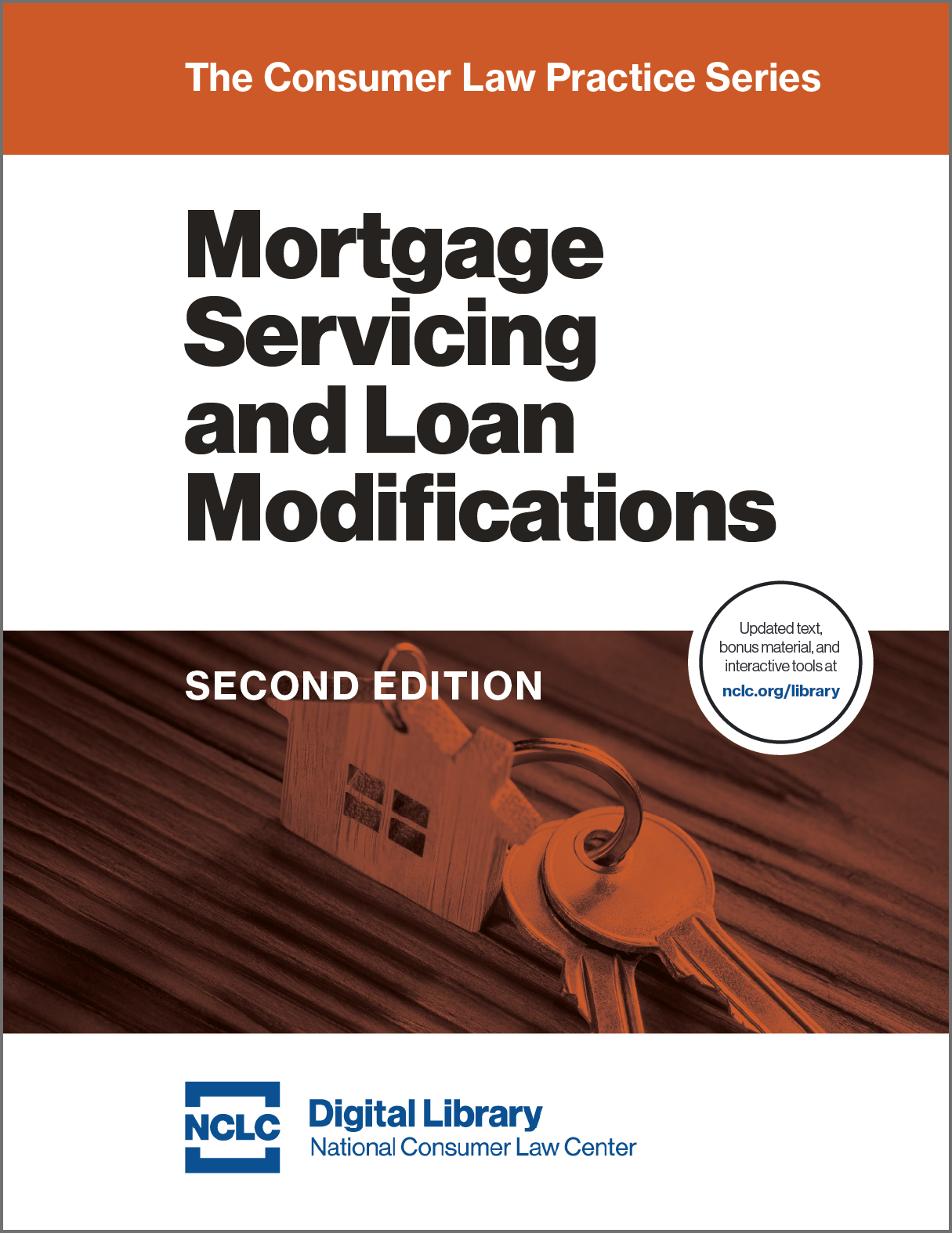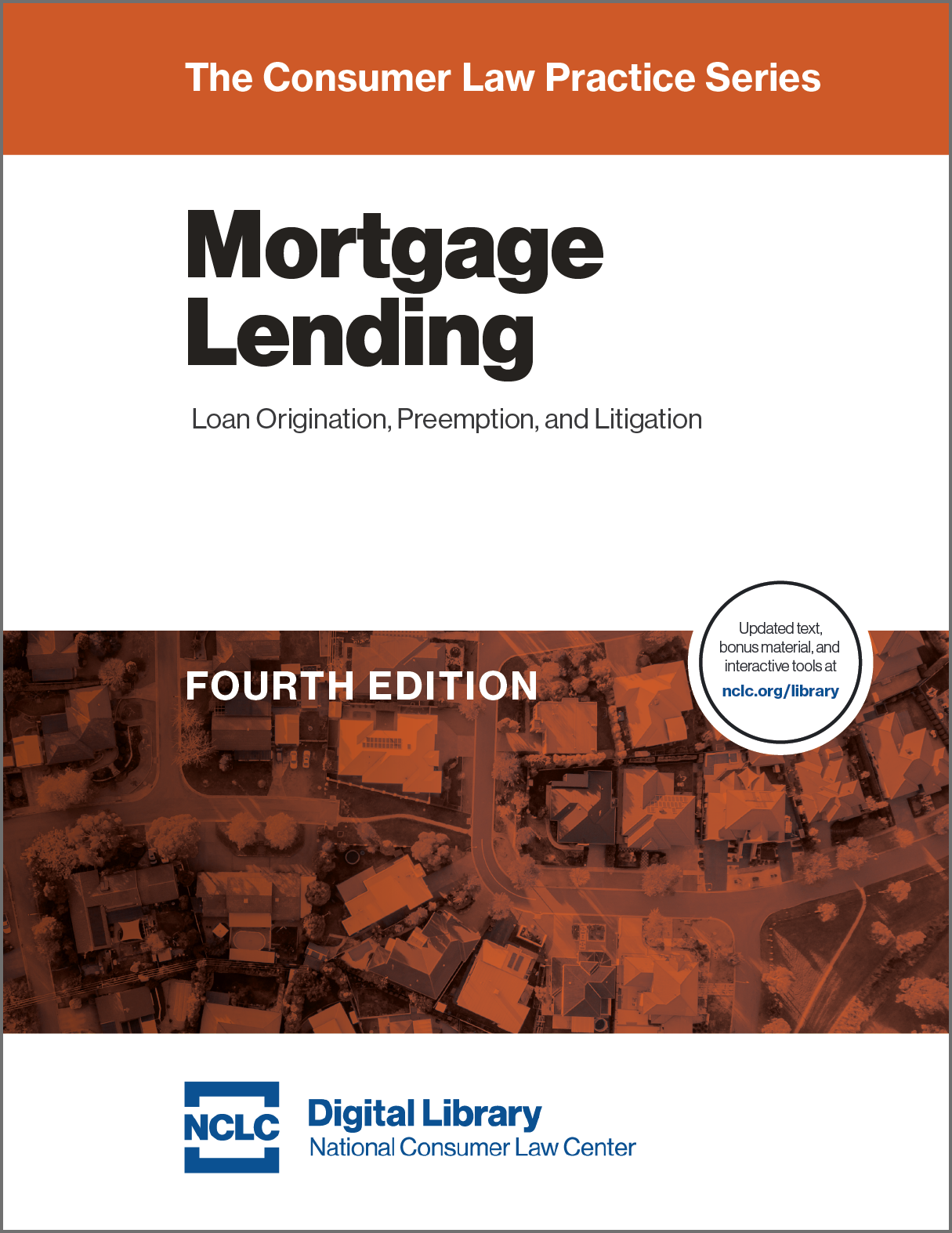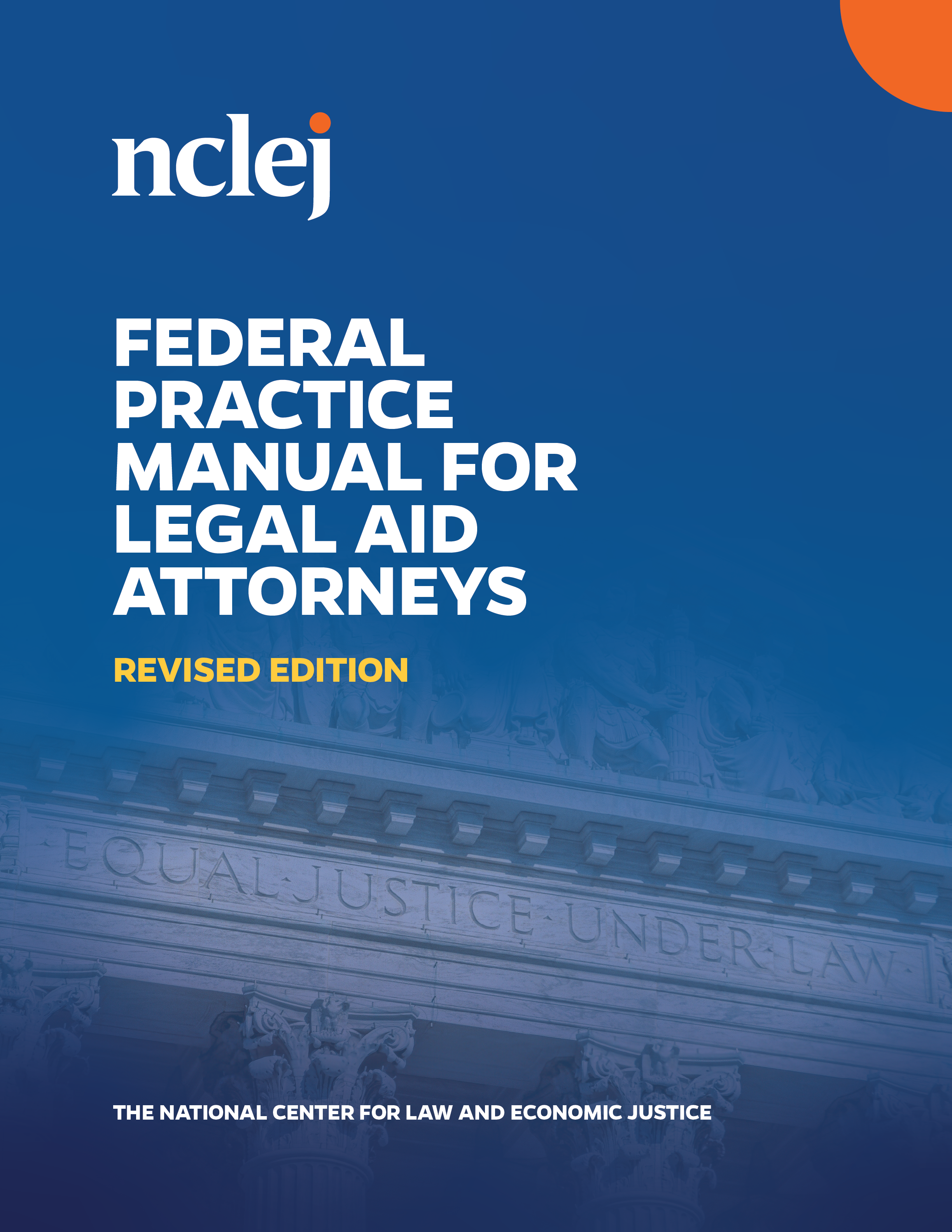Class Waivers Under Attack on Another Front
The Seventh Circuit on May 26 ruled that the National Labor Relations Act prohibits enforcement of class waivers against employees. This article explains the case and its implications for challenges to arbitration of both employment and consumer disputes.
Guide to Reducing Hospital Bills for Lower-Income Patients
Four Circuits in 2016 Rule Against Arbitration Requirements
Three June State Law Actions Helping Consumers Fight Arbitration Requirements
Where Defendant Requires Arbitration but Refuses to Pay for It
Supreme Court Enters Fray of Nursing Home Arbitration Wars
Supreme Court Rules Yet Again in Favor of Mandatory Arbitration—Why This Time the Impact Is Limited
On December 14, the Supreme Court issued its decision in DirecTV, Inc. v. Imburgia, reversing a California Court of Appeals decision from last year. The case involved a clause in DirecTV’s consumer arbitration agreement that expressly prohibited class actions in arbitration but also provided that, “[i]f . . .
Bankruptcy’s Role in Alleviating Criminal Justice Debt
Unpaid criminal justice debt can have draconian consequences, and this article explains how a bankruptcy filing can sometimes be effective in reducing that debt. Although criminal fines and restitution orders are not dischargeable in bankruptcy, other portions of a filer’s criminal justice debt may be dischargeable. The article also links to several resources covering this topic: a free May 13 webinar, a recent report, and NCLC treatises.
Advising Clients When an Abusive Partner Coerces Debt
This article provides practical tips for advising clients with debt incurred by an abusive partner through coercion and fraud—developing a safety plan, documenting the coerced debt, protecting bank accounts, dealing with unauthorized credit card use, preventing an abuser from opening new accounts in the victimized partner’s name, addressing coerced debt on a credit report, and dealing with home mortgages.
Holding Off Foreclosures While Homeowners Await Billions in HAF Payments
Only about half the states are now accepting homeowner applications for payments from the Homeowner Assistance Fund (HAF), and few funds so far have been distributed. At the same time, because of the end of many COVID-19 related homeowner protections, large numbers of homeowners may soon face foreclosure.
This article explains which homeowners are eligible for HAF payments and explores solutions for the urgent problem that many eligible homeowners may lose their homes before they are able to receive the HAF payments which would have saved their homes.
Getting Into Court by Initiating Arbitration
A May 2019 Eleventh Circuit decision provides an important illustration of how a consumer can end up in court (even in a class action) when the business does not comply with the arbitration provider’s rules. This article sets out practice tips on how a company’s failure to pay arbitration fees or meet other requirements can make the company’s arbitration agreement unenforceable.
Ninth Circuit: Collector Hired by State Agency Cannot Require Arbitration
Breazeale v. Victim Servs., Inc., 2017 WL 6601779 (9th Cir. Dec. 27, 2017) is an important decision with potentially broad consequences for litigation involving the commercialization of the criminal justice system. The court held that the Federal Arbitration Act, 9 U.S.C.
Homeowner Tactics to Overcome Problems with Tangled Titles
A new NCLC Digital Library article sets out practical solutions to problems arising from a homeowner's death in dealing with mortgages, foreclosures, reverse mortgages, property taxes and tax sales, utilities, and relief after natural disasters. The advice focuses where a home’s title is tangled—the home is stuck in probate or families living in a home for generations have never properly transferred the home’s title.
FDCPA Litigation Using New Reg. F: Pleading Tips & Recently Alleged Violations
This article provides ten pleading tips when bringing Fair Debt Collection Practices Act claims based on the new requirements found in CFPB Regulation F. The article then surveys recent federal court complaints alleging Regulation F violations as indicative of the violation patterns emerging in the six months since the Regulation’s effective date. The article links to the full text of complaints illustrating the types of violations being alleged.
